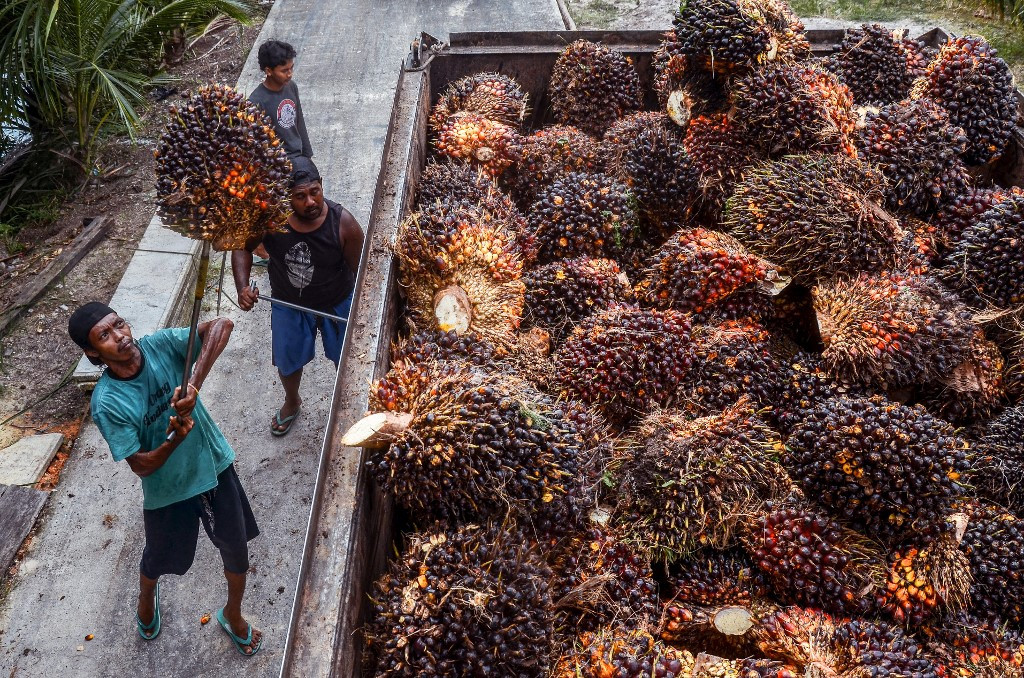Popular Reads
Top Results
Can't find what you're looking for?
View all search resultsPopular Reads
Top Results
Can't find what you're looking for?
View all search resultsFrom ban to red tape
Change text size
Gift Premium Articles
to Anyone
F
or at least 10 days after President Joko “Jokowi” Widodo lifted the palm oil export ban on May 23, not a single shipment of the commodity left port as a result of the entirely new and labyrinthine bureaucratic procedures imposed by the Trade Ministry.
The export ban, imposed on April 28 after the government failed to maintain its cooking oil price ceiling of Rp 14,000 (US$1) per liter, has caused major losses for an estimated 2.7 million oil palm smallholders and has damaged the relationship between large palm oil companies and the government.
Palm oil executives say they have yet to digest the two Trade Ministry decrees issued on May 23, the technical guidelines that followed on May 27 and the Industry Ministry’s technical briefing sheets published on May 24.
The new regulations require all companies that intend to export palm oil or its derivatives to be registered on three electronic platforms: the Indonesian National Single Window, the Bulk Cooking Oil Information Platform and the People’s Bulk Cooking Oil Platform. Their applications must be supported by documents providing estimates of monthly cooking oil production; expected domestic sales figures; data on contracts among suppliers, retailers and logistics companies; and export plans. And all applications for export permits must go through a separate electronic platform run by the Trade Ministry.
All this is meant to ensure that companies carry out their domestic market obligation (DMO) at the fixed domestic price and that the government is kept abreast of the export activities from the major producing areas in Sumatra, Kalimantan, Papua and Sulawesi.
Palm oil executives say they support the goals of the regulations but object to the complexity of the procedures, which even the government officials in charge may not fully understand because of how rushed their enactment was.
The executives say the DMO would be better managed by a single government agency overseeing a unified, nationwide logistics network. Such centralization would prevent the Trade Ministry from having to verify hundreds of separate domestic invoices. If producers deal through a single agency, only one invoice would be needed per export permit.
The most effect method, businesses say, would be if regulators established an international e-invoicing platform through which all export invoices could be filed electronically.
The government should ensure that both officials and exporters quickly master the new regulations because the longer the delay, the bigger the loss to our economy. Extrapolating from last year’s total palm oil exports of US$35 billion, the losses between April 28 and June 2 may have been some $3 billion, not to mention the costs of Indonesia’s sullied reputation as the world’s chief supplier of palm oil.











